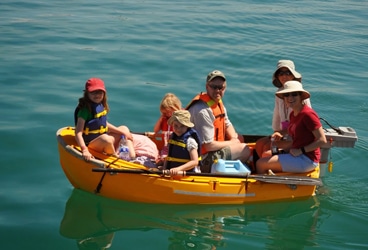
I think it’s finally passed, the 15 minutes of attention brought to the cruising community by the Rebel Heart misadventure. In the end, the American public came to learn we exist and we came to learn they don’t like us.I would love to try to answer and educate all the critics of this event, but it would require addressing too many misconceptions and trying to shift the perspectives of too many people—and really, I’m not that dogmatic, I think it’s healthy to continually question ourselves. So normalizing the decision to take children offshore, to normalize this way of living for the uninitiated, is an impossible task. And I don’t have the platform for that anyway; here I preach to the choir. Diana Selkirk did answer them, eloquently, on a conventional media outlet reaching a large, lay audience. Reading her article, I cheered—they will understand now.
And what happened?
In response to her article, Slate readers posted over 900 comments. The majority are as negative and misinformed as those I read earlier, elsewhere. The nicest of the worst assert that parents like Windy and I are irresponsible and unnecessarily putting our children’s lives at risk.
We had dinner the other night with the Spanish family aboard Lumbaz (Mom, Dad, and four kids). Though they’ve lived the past decade or so in Barcelona, he is from Germany and she is from France. Given their extensive European cultural ties, I asked how the Rebel Heart story was playing back home. They said interest was tepid; they couldn’t imagine the same negative responses in their home countries. (But of course, as a sport and a pastime, sailing and ocean voyaging are much more familiar to the folks across the pond.)
Think about how under-the-radar we are to most Americans. My grandmother’s been learning about the world around her for the past 92 years, and even with us being her window to this world (she doesn’t have access to the blog) she still has little context for imagining what my family’s life is like out here or why we choose to live on a boat with our kids. I get that.
Eleanor standing watch over the sunset in our La Paz anchorage.
But what of her neighbors, young and old, the people without a cruiser in their lives, what context do they have for interpreting this rescue as reported on the Today show? They hear that American parents took their kids out to sea on an impossibly small boat in a self-serving bid to reach French Polynesia.
If you have knowledge of sailboat voyaging, there’s nothing wrong with reviewing and critiquing the actions and decisions of this particular family (after all, that’s how we increase our own knowledge base—thought it seems only scant definitive information is yet known at this time). But the blanket admonitions I’ve read, censuring all families cruising with their kids, make as much sense as admonishing surgery and surgeons following the failure of one operation, without both a knowledge of medicine and a of the single failure.
This isn’t the first family to lose their boat and be rescued, not even the first family to abandon ship in the same ocean this year. But Rebel Heart sure garnered the lion’s share of attention. Not everyone has to like we families afloat, but hopefully a few folks have learned enough to spark an awareness, perhaps one that will grow.
–MR
__
In our twenties, we traded our boat for a house and our freedom for careers. In our thirties, we slumbered through the American dream. In our forties, we woke and traded our house for a boat and our careers for freedom. And here we are. Follow along at http://www.logofdelviento.blogspot.com/








